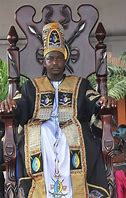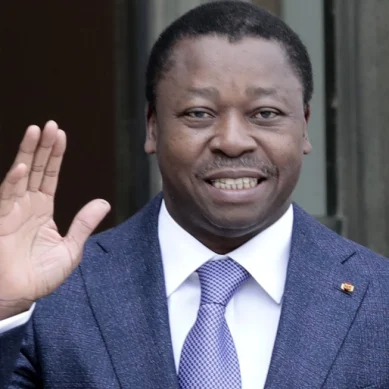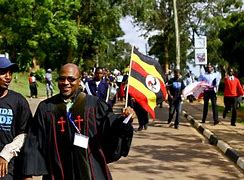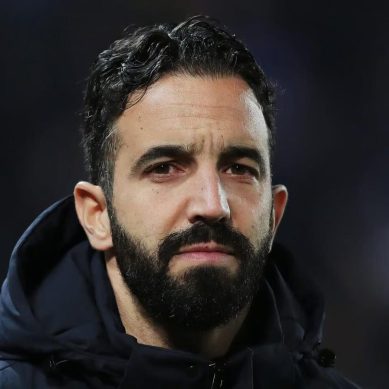
Any history of Busoga in Uganda, which excludes the simultaneous analysis of the contributions of two men whose times coincided, Semeyi Kakungulu and Daudi Kintu Mutekanga, is unlikely to be useful and a distortion of the truth.
Unfortunately, most history of Busoga has been written by people who were immigrants to Busoga, and whose interest was, or has been, to put their group at the centre of Busoga’s historical dynamics. Kakungulu concentrated on opening Busoga up to British colonial rule. Mutekanga concentrated on human development and social change through education and production.
Therefore, the most evident concealment of the truth about the history of Busoga by history writers has been propagated by excluding Daudi Kintu Mutekanga whose ancestral home was in Kananage, Kamuli Busoga from written history. While they mention the colonial role of Semeyi Kakungulu they feel more comfortable leaving Daudi Kintu Mutekanga from the History of Busoga.
When history writers write they write as if Busoga suddenly emerged some three hundred years ago and formed into an organised state only with the coming of the white man, which ends up presenting an unnatural history of the land. Apparently, Busoga is the natural home of Lake Victoria. And the source of the world’s longest river – the Nile, which is even mentioned in the Bible (Genesis, 41:1; Exodus, 1:22; 7:20; Isaiah, 23:10; Amos, 8:8) is in Jinja, Busoga.
Environmentally-speaking where there is abundant water and confluence of rivers a human civilisation develops. How can we talk of ancient civilisations of Egypt at the other end of River Nile, China, Babylon and India, for example, and we ignore the real possibility of an ancient civilisation of Busoga, more ancient than all the other frequently mentioned ancient civilisations of Man, Homo sapiens?
Being shaped like a basin, Busoga has been a receptacle of many migrations of people from elsewhere. It was also a receptacle of migratory big game (Lion, cheater, buffalo, Zebra and elephant, until the 1930s, when the exploitative Caucasians destroyed her game. Today there is nothing left. Yet before people and game co-existed.
When history is written by foreigners it is likely to be distorted to serve their interests and exclude the owners of a land or a country as if they are intruders or aberrations of the reality. That has been the case with Busoga whose history has been written by immigrants, from especially Bukedi’s Bugwere, Gogonya area, who are now either Bulamogi or Bakono.
It would be wrong to accept the conspiracy that Busoga started three years ago and that there were no indigenous Basoga, just because immigrants want to put themselves at the centre of the area’s history. That would be like saying Egypt had no indigenous black Nubians with an ancient history, characterised by huge pyramids, which were the tombs of their Kings, when Arabs arrived and intermarried with the indigenes.
There were indigenous Basoga. Some were mainland-based, and others were island based, with the islands scarred on Lake Victoria. Indeed, some clans of Busoga had some of their members migrate to the mainland from the Busoga part of Buvuma Island. My own clan, Mulawa clan, is a good example, with unique names uncommon on the mainland and in Buganda.
Anthropologists should research more, and archaeologists should delve into the fossil record more to unearth the true anthropological and archaeological record of Busoga.
We now know Busoga is very rich in gold, and is said to excel in this mineral in the whole of the Central African region. However, we don’t know whether the strategy of the current rulers is to Bantustanise it into small, unviable units called districts is related to the abundance of gold and other minerals, or just to power acquisition, extension and retention by the Centre through divide and rule.
However, it is unlikely these days that centre can do anything without prompting or connection with foreign powers. If this is it, then Bantustanised, resources-rich Busoga is in serious trouble.
This article is about two men who lived and worked in Busoga during the early times of colonisation of the area by the white man: Semeyi Kakungulu and Daudi Kintu Mutekanga. Both had multitasking skills, which they used for different reasons to change Busoga and prepare it for an uncertain future.
Semeyi Kakungulu (1869 – November 24, 1928)
Semeyi Kakungulu was a colonial agent recruited from Koki by the colonialists to bring Busoga firmly under their rule. He was a militarist, administrator and apparently a lover of trees. Busoga remembers him for planting mvule tree along the main road and through the areas, and mango trees in selected areas, and cassia trees on every country, subcounty and parish road, not far from their headquarters. I grew up in the 1950s seeing the trees that Kakungulu presided over their planting.
By the time I left the country in 1972, the illegal felling of the trees was peaking up. By the time I came back to Uganda in 1991 after nearly 20 years of absence, virtually all the mvule trees, mango trees and cassia trees had been felled for timber and charcoal.
Now we can only remember the role Semeyi Kakungulu played, as President of the Parliament of Busoga (Lukiiko) and Chief Administrator, on behalf of the colonialists, in destroying the Igaga hegemony at Nnenda Hill, in Busambira, Kigulu; bringing all the chiefdoms of Busoga under colonial rule; transferring the Parliament of Busoga from Nnenda Hill to Butaleja, in present day Mayuge; building the headquarters of the then District of Busoga at Bugembe; and presiding over the introduction of sugarcane, cotton and coffee in Busoga.
A lot has been written about Semeyi Kakungulu in books by the colonialists and Africans. His name appears in many academic papers and theses. He was a statesman in the emerging colonial state of the Protectorate of Uganda.
One text on Semeyi Kakungulu published online by Cambridge University Press on May 13, 2014 records that this colonial agent enjoyed at least nine lives immediately before, during and after the imposition of British colonial rule in the Uganda Protectorate. He was an elephant hunter in Busoga. Elephants used to migrate from elsewhere in the protectorate to the swamps of Busoga during the dry season.
Kakungulu was allowed by his masters to hunt along with them and separately. He was a guerilla leader par excellence, a Ganda chief, border warlord, British ally in military campaigns, especially in Bunyoro, native tax collector, colonial client-king, President of Busoga Parliament (Lukiiko) and leader of the anti-medicine Bamalaki and Abayudaya separatist sects.
He established his Abayudaya (Jews) community in the protectorate in 1917. He also studied and meditated on the Old Testament of the Bible, adopted the observance of all Moses’ commandments, including circumcision. He decreed that all his followers observe the commandments without fail. He was a dictatorial statesman. He, therefore, had an extraordinary career: many things in one person.
The colonialists did not interfere with his many lives so long as he served their aims in the protectorate in general and Busoga in particular. He played no visible developmental and social transformational role in Busoga. His ultimate goal was to establish British colonial hegemony over all Busoga and ensure that chiefs subordinate themselves to colonial rule, the people produced crops and paid taxes to the evolving British Protectorate and obeyed the colonial laws.
Perhaps today we can compare President Tibuhaburwa Museveni to Semeyi Kakungulu. He comes close to Semeyi Kakungulu in serving the interests of expanded Anglo-American axis. Like the British colonialists did towards Kakungulu, the Anglo-American axis has left the president of Uganda to do anything he wants, including ruling like a monarch, so long as it serves their interests.
He can even abuse them without fear of reprisals. They will comment on his poor human rights record as bad, but stick by him, so long as their interests in the East and Central African are well served in a reciprocal give and take manner.
Like Semi Kakungulu, the role of President Yoweri Tibuhaburwa Museveni in Busoga is more to prepare the region for recolonisation, reconquest, reoccupation, redomination and exploitation by external political and economic forces. It is under his rule that Busoga has sunk more deeply in the abyss of poverty, illiteracy and ignorance, almost close to what the situation was when Kakungulu was President of Busoga Lukiiko.
For President Yoweri Tibuhaburwa Museveni, the focus, as he articulated in his philosophy of development, `is “Development (infrastructure) first, nature and environment next and people (social development) last.”
In this he is similar to the colonialists who put economic development first to serve their interests and Kakungulu who served their interests. He has erected laws to tame Basoga and other Ugandans in what he considers “the right direction”, yet it is a direction of recolonization, reconquest, reoccupation, redomination and re-exploitation.
- A Tell report / Opinion / By Prof Oweyegha-Afunaduula, a retired professor of political science and environment at Makerere University, Kampala, Uganda.











